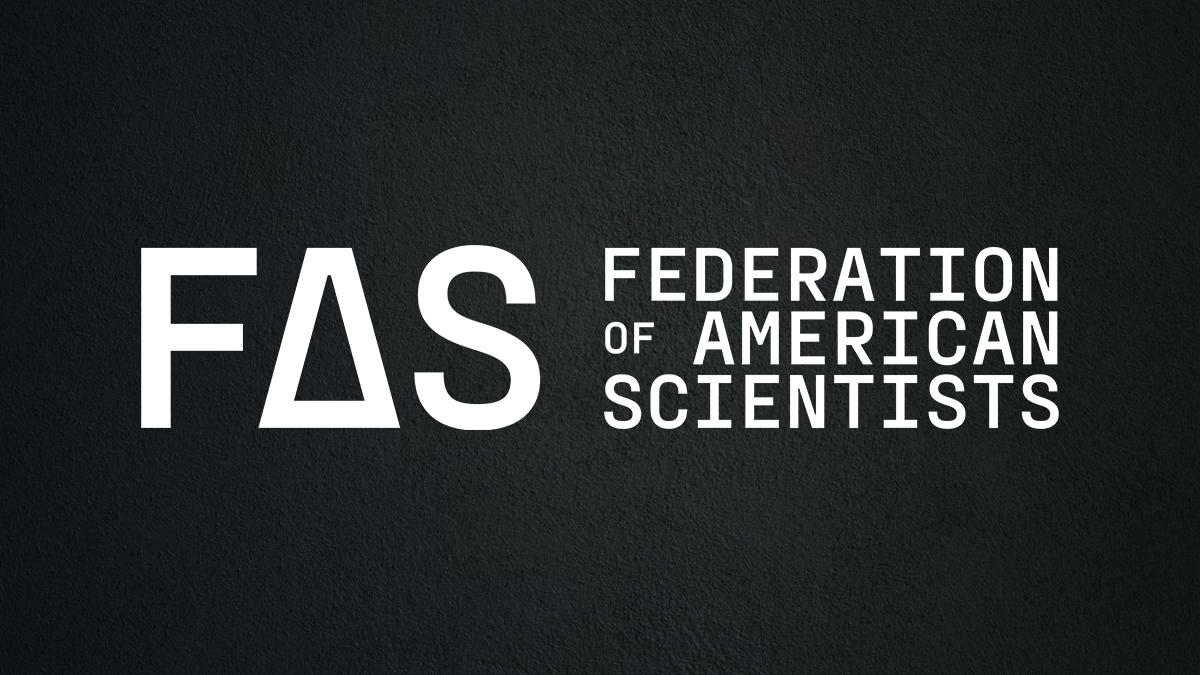
Position on National Security Commission on Emerging Biotechnology Final Report: Charting the Future of Biotechnology
The Federation of American Scientists supports the National Security Commission on Emerging Biotechnology’s Final Report and the Recommendations contained within it.
Charting the Future of Biotechnology delivers 49 recommendations to foster the growth of the biotechnology and biomanufacturing sector within the U.S. bioeconomy. Implementing the recommendations outlined in this report will strengthen the U.S. bioeconomy by establishing a unified national strategy that fosters innovation in biotechnology, ensures our continued global competitiveness, and delivers significant economic and societal benefits to the nation.
FAS is particularly excited by these recommendations:
- 1.1a: Establishment of a National Biotechnology Coordination Office
- 2.2a-d: Economic levers to promote scale-up and innovations coming to market
- 2.4a: Biotechnology infrastructure and data to be classified as “critical infrastructure”
- 3.1a: Department of Defense to consult with stakeholders to define principles for ethical use of biotechnology
- 4.3a-c: Centers for Biotechnology
- 5.1a through 5.3b: Biotechnology workforce for the future
- 6.1a-e: Strengthen global U.S. biotechnology efforts through global policy
These recommendations have the potential to address key challenges within the U.S. bioeconomy, including the lack of a coordinated strategy, commercialization barriers, workforce shortages, and supply chain vulnerabilities.
“FAS applauds the NSCEB’s deep investigation of unlocking U.S.-led biotechnology in the Fourth Industrial Revolution. We look forward to bringing FAS’s unique and effective approach of policy entrepreneurship to realize the promise of these capabilities while reducing the risks of misuse,” said Yong-Bee Lim, Associate Director of Global Risk at the Federation of American Scientists.
“The National Commission on Emerging Biotechnology report developed 50 recommendations to address the major challenges currently facing the U.S. bioeconomy: a lack of strategy and coordination across the federal government, difficulties in scaling biotechnology innovations, and the need for a trained workforce for the future. These recommendations aim to de-risk the biotechnology sector, thereby enabling private sector investment in critical biotechnology and biomanufacturing initiatives. Ultimately, these efforts will foster continued growth, secure the U.S. bioeconomy, and lead to the creation of new jobs and further economic growth.”” said Nazish Jeffery, Bioeconomy Policy Manager at the Federation of American Scientists. “It will be important to continue advocating, refining, and adding additional recommendations in order to realize the full value that this report offers.”
For more information contact Nazish Jeffery, FAS Bioeconomy Policy Manager, njeffery@fas.org.
Advancing the U.S. leadership in emerging biotechnology is a strategic imperative, one that will shape regional development within the U.S., economic competitiveness abroad, and our national security for decades to come.
Inconsistent metrics and opaque reporting make future AI power‑demand estimates extremely uncertain, leaving grid planners in the dark and climate targets on the line
As AI becomes more capable and integrated throughout the United States economy, its growing demand for energy, water, land, and raw materials is driving significant economic and environmental costs, from increased air pollution to higher costs for ratepayers.
Preempting all state regulation in the absence of federal action would leave a dangerous vacuum, further undermining public confidence in these technologies.